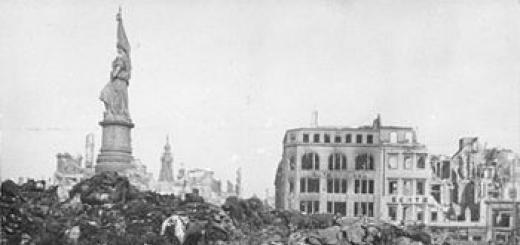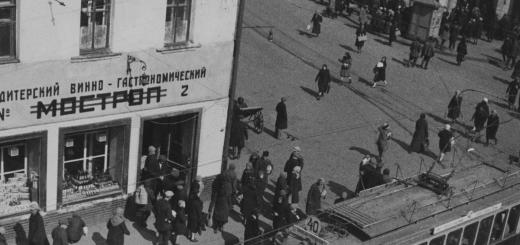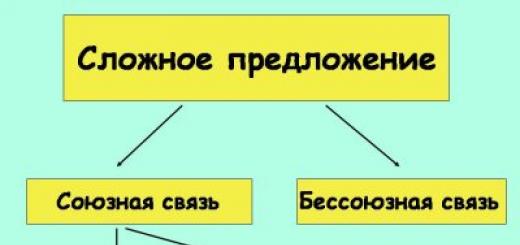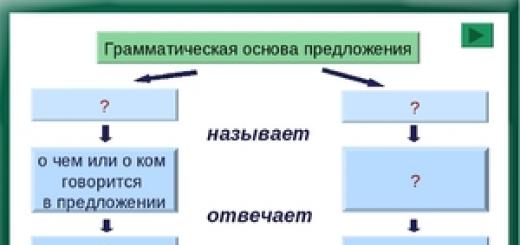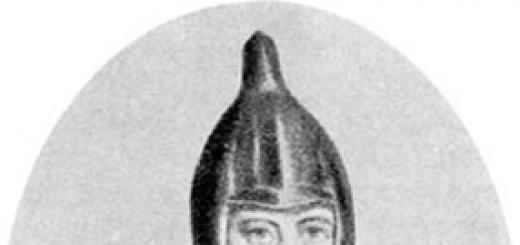STALIN:Life has become better, comrades. Life has become more fun. And when life is fun, work goes on
1. THE SIGNIFICANCE OF THE STAKHANOV MOVEMENT
Comrades! So much and so well was said about the Stakhanovites here, at this conference, that there really is little left for me to say. Nevertheless, since I have been called to the podium, I will have to say a few words.
The Stakhanovite movement cannot be regarded as an ordinary movement of workers and working women. The Stakhanovite movement is a movement of workers and working women that will go down in the history of our socialist construction as one of its most glorious pages.
What is the significance of the Stakhanovite movement?
First of all, in that it expresses a new upsurge in socialist emulation, a new, higher stage of socialist emulation. Why new, why superior? Because it, the Stakhanovite movement, compares favorably as an expression of socialist emulation with the old stage of socialist emulation. In the past, three years ago, during the first stage of socialist emulation, socialist emulation was not necessarily associated with new technology. Yes, then we, in fact, did not have almost new technology. The current stage of socialist competition, the Stakhanov movement, on the contrary, is necessarily connected with new technology. The Stakhanovite movement would have been unthinkable without a new, higher technique. Before you are people like Comrades Stakhanov, Busygin, Smetanin, Krivonos, Pronin, the Vinogradovs and many others, new people, men and women who have fully mastered the technique of their business, saddled it and drove it forward. We did not have such people or almost did not exist three years ago. These are new, special people.
Further. The Stakhanovite movement is such a movement of workers and women that aims to overcome the current technical standards, to overcome the existing design capacities, to overcome the existing production plans and balances. Overcoming - because they, these very norms, have already become old for our days, for our new people. This movement breaks the old views on technology, breaks old technical norms, old design capacities, old production plans, and requires the creation of new, higher technical standards, design capacities, production plans. It is designed to revolutionize our industry. That is why it, the Stakhanov movement, is fundamentally deeply revolutionary.
It has already been said here that the Stakhanov movement, as an expression of new, higher technical standards, is an example of that high productivity of labor which only socialism can give and which capitalism cannot give. This is absolutely correct. Why did capitalism smash and overcome feudalism? Because he created higher standards of labor productivity, he made it possible for society to receive incomparably more products than was the case under the feudal system. Because he made society richer. Why can, must and must socialism defeat the capitalist system of economy? Because it can provide higher standards of labor, higher labor productivity than the capitalist economic system. Because it can give society more products and can make society richer than the capitalist economic system.
Some people think that socialism can be strengthened by some material wounding of people on the basis of a poor life. This is not true. This is a petty-bourgeois idea of socialism. In fact, socialism can only win on the basis of high labor productivity, higher than under capitalism, on the basis of an abundance of products and all kinds of consumer goods, on the basis of a prosperous and cultural life for all members of society. But in order for socialism to achieve this goal of its own and to make our Soviet society the most prosperous, it is necessary to have in the country such a productivity of labor that surpasses that of the advanced capitalist countries. Without this, there is nothing to think about the abundance of products and all kinds of consumer goods. The significance of the Stakhanovist movement lies in the fact that it is a movement that breaks down the old technical norms as insufficient, in a number of cases exceeds the productivity of labor in the advanced capitalist countries, and thus opens up the practical possibility of further strengthening socialism in our country, the possibility of transforming our country to the most prosperous country.
But this does not exhaust the significance of the Stakhanov movement. Its significance also lies in the fact that it prepares the conditions for the transition from socialism to communism.
The principle of socialism is that in a socialist society everyone works according to his abilities and receives consumer goods not according to his needs, but according to the work he has done for society. This means that the cultural and technical level of the working class is still low, the opposition between mental and physical labor continues to exist, labor productivity is not yet high enough to ensure an abundance of consumer goods, as a result of which society is forced to distribute consumer goods not in accordance with the needs of members of society, and according to the work they have done for society.
Communism represents a higher stage of development. The principle of communism is that in a communist society everyone works according to his abilities and receives consumer goods not according to the work that he has done, but according to the needs of a culturally developed person that he has. This means that the cultural and technical level of the working class has become sufficiently high to undermine the foundations of the opposition between mental and physical labor, the opposition between mental and physical labor has already disappeared, and labor productivity has risen to such a high level that it can ensure full an abundance of commodities, whereby society is able to distribute these commodities according to the needs of its members.
Some people think that the elimination of the opposition between mental and physical labor can be achieved by a certain cultural and technical equalization of mental and physical workers on the basis of lowering the cultural and technical level of engineers and technicians, intellectual workers, to the level of medium-skilled workers. This is completely false. Only petty-bourgeois babblers can think of communism in this way. In fact, the elimination of the antithesis between mental and physical labor can be achieved only on the basis of raising the cultural and technical level of the working class to the level of engineering and technical workers. It would be ridiculous to think that such a rise is impossible. It is fully feasible under the conditions of the Soviet system, where the country's productive forces have been freed from the fetters of capitalism, where labor has been freed from the yoke of exploitation, where the working class is in power, and where the young generation of the working class has every opportunity to secure a sufficient technical education for itself. There is no reason to doubt that only such a cultural and technical upsurge of the working class can undermine the foundations of the antithesis between mental and physical labor, that only it can ensure that high productivity of labor and that abundance of consumer goods that are necessary in order to begin the transition. from socialism to communism.
The Stakhanovite movement is significant in this connection in the sense that it contains the first beginnings, still weak, it is true, but still the beginnings of just such a cultural and technical upsurge of the working class of our country.
In fact, take a closer look at the Stakhanovite comrades. What are these people? These are mainly young or middle-aged workers and workers, cultured and technically savvy people, who give examples of accuracy and accuracy in work, who know how to appreciate the time factor in work and who have learned to count time not only in minutes, but also in seconds. Most of them have passed the so-called technical minimum and continue to replenish their technical education. They are free from the conservatism and stagnation of some engineers, technicians and business executives, they are boldly advancing, breaking outdated technical standards and creating new, higher ones, they are amending the design capacities and economic plans drawn up by the leaders of our industry, they are constantly supplementing and they correct engineers and technicians, they often teach and push them forward, for these are people who have fully mastered the technique of their business and are able to squeeze the maximum out of technology that can be squeezed out of it. Today there are still few Stakhanovites, but who can doubt that tomorrow there will be ten times as many of them? Is it not clear that the Stakhanovites are innovators in our industry, that the Stakhanovite movement represents the future of our industry, that it contains the seed of the future cultural and technical upsurge of the working class, that it opens up for us the path on which alone we can achieve those highest indicators labor productivity, which are necessary for the transition from socialism to communism and the elimination of the opposition between mental and physical labor?
Such, comrades, is the significance of the Stakhanov movement in our socialist construction.
Did Stakhanov and Busygin think about this great significance of the Stakhanovite movement when they set about breaking the old technical norms? Of course not. They had their own concerns - they were striving to bring the enterprise out of the breakthrough and overfulfill the economic plan. But in achieving this goal, they had to smash the old technical norms and develop high labor productivity, which blocked the advanced capitalist countries. It would be ridiculous, however, to think that this circumstance can in the least diminish the great historical significance of the Stakhanovite movement.
The same can be said about those workers who first organized Soviets of Workers' Deputies in our country in 1905. Of course, they did not think that the Soviets of Workers' Deputies would serve as the basis of the socialist system. They only defended themselves against tsarism, against the bourgeoisie, by creating Soviets of Workers' Deputies. But this circumstance does not in the least contradict the indubitable fact that the movement for the Soviets of Workers' Deputies, begun in 1905 by the Leningrad and Moscow workers, ultimately led to the defeat of capitalism and the victory of socialism in one-sixth of the world.
2. ROOTS OF THE STAKHANOV MOVEMENT
We are now present at the cradle of the Stakhanov movement, at its origins.
Some characteristic features of the Stakhanov movement should be noted.
First of all, the fact that it, this movement, began somehow spontaneously, almost spontaneously, from below, without any pressure from the administration of our enterprises, is striking. Furthermore. This movement originated and began to develop to a certain extent against the will of the administration of our enterprises, even in the struggle against it. Comrade Molotov has already told you about the torments Comrade Musinsky, a sawmiller in Arkhangelsk, had to go through when, secretly from the economic organization, secretly from the inspectors, he worked out new, higher technical standards. The fate of Stakhanov himself was not the best, for he had to defend himself in his advance not only from certain members of the administration, but also from certain workers who ridiculed and persecuted him for "innovations". As for Busygin, it is known that he almost paid for his "innovations" by losing his job at the plant, and only the intervention of the foreman, Comrade Sokolinsky, helped him stay at the plant.
As you can see, if there was any influence on the part of the administration of our enterprises, then it did not go towards the Stakhanovist movement, but in defiance of it. Consequently, the Stakhanovite movement originated and developed as a movement coming from below. And precisely because it originated spontaneously, precisely because it comes from below, it is the most vital and irresistible movement of our time.
Further, we should dwell on one more characteristic feature of the Stakhanovite movement. It consists, this characteristic feature, in the fact that the Stakhanovite movement has spread over the entire face of our Union not gradually, but with some unprecedented speed, like a hurricane. Where did the business start? Stakhanov raised the technical norm of coal mining by five or six times, if not more. Busygin and Smetanin did the same, one in the field of mechanical engineering, the other in the field of the shoe industry. Newspapers reported these facts. And suddenly - the flame of the Stakhanovist movement enveloped the whole country. What's the matter here? Where did such speed in the spread of the Stakhanov movement come from? Maybe Stakhanov and Busygin are great organizers with great connections in the regions and districts of the USSR, and they themselves organized this business? No, of course not! Maybe Stakhanov and Busygin have a claim to be the great figures of our country and they themselves spread the sparks of the Stakhanov movement throughout the country? This is also incorrect. You saw Stakhanov and Busygin here. They spoke at the meeting. These are simple and modest people, without any pretensions whatsoever to acquire laurels on an all-Union scale. It even seems to me that they are somewhat embarrassed by the scope of the movement that has unfolded in our country contrary to their expectations. And if, in spite of this, the match thrown by Stakhanov and Busygin turned out to be enough to turn the whole thing into a flame, then this means that the Stakhanov movement is a matter that is completely overdue. Only a movement that is fully ripe and waiting for a push in order to break free, only such a movement could spread so quickly and grow like a snowball.
How is it to be explained that the Stakhanovite movement turned out to be a completely overdue matter? What are the reasons why it has spread so rapidly? What are the roots of the Stakhanovite movement?
There are at least four of these reasons.
1) The basis of the Stakhanovist movement was primarily a radical improvement in the material conditions of the workers. Life has become better, comrades. Life has become more fun. And when life is fun, the work goes on. Hence the high production rates. Hence the heroes and heroines of labor. This is, above all, the root of the Stakhanovite movement. If we had a crisis, if we had unemployment - the scourge of the working class, if our life was bad, unattractive, sad, then we would not have any Stakhanovist movement. Our proletarian revolution is the only revolution in the world that has been able to show the people not only its political results, but also its material results. Of all the workers' revolutions, we know of only one that somehow achieved power. This is the Paris Commune. But she didn't last long. True, it tried to break the fetters of capitalism, but it did not manage to break them, much less show the people the good material results of the revolution. Our revolution is the only one that not only broke the fetters of capitalism and gave the people freedom, but also managed to give the people the material conditions for a prosperous life. This is the strength and invincibility of our revolution. Of course, it is good to drive out the capitalists, drive out the landowners, drive out the tsarist guardsmen, take power and gain freedom. It is very good. But, unfortunately, freedom alone is far from enough. If there is not enough bread, not enough butter and fats, not enough textiles, bad dwellings, then you will not go far with freedom alone. It is very difficult, comrades, to live in freedom alone. In order to be able to live well and cheerfully, it is necessary that the benefits of political freedom be supplemented by material benefits. A characteristic feature of our revolution is that it gave the people not only freedom, but also material benefits, but also the possibility of a prosperous and cultural life. That is why life has become fun with us, and that is the basis on which the Stakhanov movement has grown.
2) The second source of the Stakhanovite movement in our country is the lack of exploitation. People work in our country not for the exploiters, not for the enrichment of parasites, but for themselves, for their own class, for their own, Soviet society, where the best people of the working class are in power. That is why labor has a social significance with us, it is a matter of honor and glory. Under capitalism, labor has a private, personal character. Worked out more - get more and live for yourself, as you know. Nobody knows you and nobody wants to know. You work for the capitalists, you enrich them? How else? That's why you were hired to enrich the exploiters. You do not agree with this - go into the ranks of the unemployed and vegetate, as you know - we will find others who are more accommodating. That is why the labor of people is not highly valued under capitalism. It is clear that under such conditions there can be no place for the Stakhanovite movement. Another thing - in the conditions of the Soviet system. Here the working man is held in high esteem. Here he works not for the exploiters, but for himself, for his class, for society. Here, a working person cannot feel abandoned and lonely. On the contrary, in our country the working man feels that he is a free citizen of his country, a kind of public figure. And if he works well and gives to society what he can give, he is a hero of labor, he is covered with glory. It is clear that only under such conditions could the Stakhanovite movement arise.
3) The third source of the Stakhanovite movement should be considered the presence of new technology in our country. The Stakhanov movement is organically connected with new technology. Without new technology, without new plants and factories, without new equipment, the Stakhanov movement could not have arisen in our country. Without new technology, it is possible to raise technical standards by one or two times - no more. If the Stakhanovites have raised technical standards by five and six times, this means that they rely wholly and entirely on new technology. Thus, it turns out that the industrialization of our country, the reconstruction of our plants and factories, the availability of new technology and new equipment served as one of the reasons that gave rise to the Stakhanov movement.
4) But you won’t get far on new technology alone. You can have first-class equipment, first-class plants and factories, but if there are no people capable of saddling this equipment, your equipment will remain bare equipment. In order for the new technique to be able to give its results, it is necessary to have more people, cadres of workers and working women, capable of becoming the head of technology and moving it forward. The birth and growth of the Stakhanovite movement means that such cadres have already arisen among our workers and working women. About two years ago the Party said that by building new plants and factories and giving our enterprises new equipment, we had done only half the job. The Party said at the time that the enthusiasm for building new factories must be supplemented by enthusiasm for their development, that only in this way can the work be carried through to the end. Obviously, during these two years, this new technology was being mastered and new personnel were being born. Now it is clear that we already have such personnel. It is clear that without such cadres, without these new people, we would not have had any Stakhanovite movement. Thus, new people from workers and workers, who mastered the new technique, served as the force that shaped and moved forward the Stakhanov movement.
Such are the conditions that gave rise to and propelled the Stakhanovite movement forward.
3. NEW PEOPLE - NEW TECHNICAL STANDARDS
I said that the Stakhanovite movement developed not in the order of gradualness, but in the order of an explosion that broke through some kind of dam. Obviously, he had to overcome some obstacles. Someone interfered with him, someone squeezed him, and now, having accumulated strength, the Stakhanov movement broke through these obstacles and flooded the country.
What is the matter here, who, in fact, interfered?
The old technical norms and the people who stood behind these norms interfered. Several years ago, our engineering, technical and economic workers drew up certain technical standards for the technical backwardness of our workers and women. Several years have passed since then. During this time, people have grown up and are technically savvy. But the technical standards remained unchanged. It is clear that these norms have now turned out to be outdated for our new people. Now everyone scolds the current technical standards. But they didn't fall from the sky. And the point here is not at all that these technical standards were drawn up in their time as underestimated standards. The point is, first of all, that now, when these norms have already become obsolete, they are trying to defend them as modern norms. They cling to the technical backwardness of our workers and women, orient themselves on this backwardness, proceed from backwardness, and things finally come to the point where they begin to play backwardness. Well, what if this backwardness recedes into the realm of the past? Are we really going to bow before our backwardness and make an icon out of it, a fetish? What if the workers and women workers have already grown up and become technically savvy? What should we do if the old technical norms no longer correspond to reality, and our workers and women workers have actually managed to block them five times, ten times? Have we ever sworn allegiance to our backwardness? It seems that we did not have this, comrades? Did we proceed from the assumption that our workers and women workers would forever remain backward? As if we didn't proceed from this? What is the point then? Don't we have the courage to break the conservatism of some of our engineers and technicians, break the old traditions and norms and give free rein to the new forces of the working class?
They talk about science. It is said that the data of science, the data of technical handbooks and instructions, contradict the demands of the Stakhanovites for new, higher technical standards. But what kind of science are we talking about here? These sciences have always been tested by practice and experience. Science that has broken ties with practice, with experience - what kind of science is this? If science were such as some of our conservative comrades portray it, then it would have perished for humanity long ago. Science is called science because it does not recognize fetishes, is not afraid to raise a hand against the obsolete, old, and sensitively listens to the voice of experience, practice. If things were different, we would not have science at all, we would not have, say, astronomy, and we would still make do with the dilapidated system of Ptolemy, we would not have biology, and we would still console ourselves with the legend of the creation of man, we there would be no chemistry and we would still make do with the divinations of the alchemists.
That is why I think that our engineering, technical and economic workers, who have already managed to lag behind the Stakhanovite movement, would do well if they stopped clinging to the old technical norms and reorganized in a truly, scientifically, in a new, Stakhanov way. .
Okay, they'll tell us. But what about technical standards in general? Are they necessary for industry or can you do without any standards at all?
Some say we don't need any more technical regulations. This is not true, comrades. Moreover, it's stupid. Without technical norms, a planned economy is impossible. Technical standards are needed, moreover, in order to draw the lagging behind the masses to the advanced ones. Technical standards are a great regulating force that organizes in production the broad masses of workers around the advanced elements of the working class. Consequently, we need technical standards, but not the ones that exist now, but higher ones.
Others say that technical standards are needed, but they must now be brought to the level of the achievements achieved by the Stakhanovs, Busygins, Vinogradovs and others. This is also incorrect. Such norms would be unrealistic for the present time, because working men and women, less technically savvy than the Stakhanovs and Busygins, would not be able to fulfill such norms. We need technical standards that would fall somewhere in the middle between the current technical standards and those standards achieved by the Stakhanovs and Busygins. Take, for example, Maria Demchenko, the well-known 500 beet worker. She achieved a beet harvest per hectare of 500 and more centners. Is it possible to make this achievement the norm of productivity for the entire sugar beet farm, say, in Ukraine? No. It's too early to talk about it. Maria Demchenko has achieved five hundred and more centners per hectare, and the average beet harvest, for example, in Ukraine this year is 130-132 centners per hectare. The difference, as you can see, is not small. Is it possible to give a norm for a beet yield of 400 or 300 centners? All experts on the matter say that it is impossible to do this for the time being. It is obvious that we will have to give a standard for yield per hectare in Ukraine in 1936 at 200-250 centners. And this norm is not small, because if it were met, it could give us twice as much sugar as in 1935. The same must be said about industry. Stakhanov blocked the existing technical norm, it seems, ten times or even more. It would be unreasonable to declare this achievement a new technical norm for all workers on a jackhammer. It is obvious that we will have to give a norm somewhere in the middle between the existing technical norm and the norm implemented by Comrade Stakhanov.
One thing, in any case, is clear: the current technical standards no longer correspond to reality, they have fallen behind and have turned into a brake on our industry, and in order not to slow down our industry, it is necessary to replace them with new, higher technical standards. New people, new times, new technical standards.
4. IMMEDIATE TASKS
What are our immediate tasks from the point of view of the interests of the Stakhanov movement?
In order not to scatter, let's reduce this matter to two immediate tasks.
Firstly. The task is to help the Stakhanovites develop the Stakhanovite movement further and spread it in breadth and depth to all regions and districts of the USSR. This is on the one hand. And on the other hand, to curb all those elements among the economic and engineering and technical workers who stubbornly cling to the old, do not want to move forward and systematically hamper the development of the Stakhanov movement. In order to spread the Stakhanovite movement with might and main throughout the entire face of our country, for this the Stakhanovites alone, of course, are not enough. It is essential that our Party organizations get involved in this matter and help the Stakhanovites to carry the movement to the end. In this regard, the Donetsk regional organization has shown an undeniably great initiative. The Moscow and Leningrad regional organizations work well in this sense. How about other areas? They are apparently still "swaying". For example, something is not heard or very little is heard about the Urals, although the Urals are, as you know, a huge industrial center. The same must be said about Western Siberia, about the Kuzbass, where, apparently, they have not had time to "swing" yet. However, there can be no doubt that our Party organizations will take up this task and help the Stakhanovites overcome their difficulties. As for the other side of the matter - the curbing of stubborn conservatives from among the economic and engineering and technical workers, here the situation will be somewhat more complicated. First of all, we will have to convince, patiently and comradely, these conservative elements of industry of the progressive nature of the Stakhanov movement and the need to reorganize in the Stakhanov way. And if persuasion does not help, you will have to take more drastic measures. Take, for example, the Commissariat of Railways. In the central apparatus of this people's commissariat there recently existed a group of professors, engineers and other experts in the field - among them were communists - who assured everyone that 13-14 kilometers of commercial speed per hour is the limit, beyond which it is impossible, it is impossible to move if do not want to come into conflict with the "science of exploitation". It was a rather authoritative group that preached its views orally and in print, gave instructions to the relevant bodies of the People's Commissariat for Commissariat of Civilizations and, in general, was the "ruler of thoughts" among the exploiters. We, not experts in the matter, on the basis of the proposals of a number of railway practitioners, in turn, assured these authoritative professors that 13-14 kilometers could not be the limit, that with a certain organization of the matter it was possible to expand this limit. In response to this, this group, instead of listening to the voice of experience and practice and reconsidering its attitude to the matter, rushed into the fight against the progressive elements of the railway business and further intensified the propaganda of their conservative views. It is clear that we had to give these respected people a little in the teeth and politely escort them out of the central apparatus of the NKPS. And what? We now have a commercial speed of 18-19 kilometers per hour. It seems to me, comrades, that as a last resort we will have to resort to this method in other areas of our national economy, unless, of course, the stubborn conservatives stop hindering and throwing spokes into the wheels of the Stakhanovist movement.
Secondly. The task is to help those business executives, engineers and technicians who do not want to interfere with the Stakhanov Movement, who sympathize with this movement, but have not yet managed to reorganize and have not yet managed to lead the Stakhanov movement, to reorganize and lead the Stakhanov movement. I must say, comrades, that we have many such business executives, engineers and technicians. And if we help these comrades, then we will undoubtedly have even more of them.
I think that if these tasks are accomplished by us, the Stakhanovite movement will unfold with might and main, embrace all regions and districts of our country and show us the wonders of new achievements.
5. TWO WORDS
A few words about this meeting, about its significance. Lenin taught that only such leaders can be real Bolshevik leaders who are able not only to teach the workers and peasants, but also to learn from them. Some of the Bolsheviks did not like these words of Lenin. But history shows that Lenin turned out to be 100% right in this area too. Indeed, millions of working people, workers and peasants are working, living and fighting. Who can doubt that these people do not live in vain, that, living and fighting, these people accumulate enormous practical experience? Is it possible to doubt that leaders who neglect this experience cannot be considered real leaders? Therefore, we, the leaders of the party and government, must not only teach the workers, but also learn from them. That you, the members of this conference, have learned something here at the conference from the leaders of our government, I will not deny it. But it cannot be denied that we, the leaders of the government, have learned a lot from you, from the Stakhanovites, from the members of this conference. So, thank you, comrades, for your studies, thank you very much! ( Stormy applause.)
Finally, a word or two about how the present meeting should be commemorated. Here in the presidium we conferred and decided that we would have to celebrate this conference of the leaders of the authorities with the leaders of the Stakhanov movement in some way. And so we came to such a decision that 100-120 people from you will have to be presented for the highest award.
STALIN. If you approve, comrades, then we will carry out this matter.
(The participants in the meeting of the Stakhanovites arrange a stormy, enthusiastic ovation for Comrade Stalin. The whole hall rumbles with applause, a powerful "hurrah" shakes the vaults of the hall. Countless exclamations welcoming the leader of the party, Comrade Stalin, are heard from all over. The ovation ends with the powerful singing of the "Internationale" - three thousand participants in the meeting sing the proletarian anthem.)
Text reproduced from the edition: First All-Union Conference of Stakhanovite Workers and Workers. November 14 - 17, 1935. Stenograph. report. - S. 363 - 376.
Many people remember this phrase, uttered by the General Secretary of the Central Committee of the All-Union Communist Party of Bolsheviks, I. V. Stalin, on November 17, 1935, in a speech at the First All-Union Conference of Workers and Workers - Stakhanovites. The full phrase sounded like this: “Life has become better, comrades. Life has become more fun. And when life is fun, the work is argued ... If we had a bad, unsightly, sad life, then we would not have any Stakhanovist movement.
The evil irony of the phrase lies in the fact that it was uttered on the eve of the peak of mass repressions of the late 1930s. Don’t say anything, but Comrade Stalin’s humor was peculiar and this post is dedicated to this humor
He was such a joke...
Comrade Stalin had a specific sense of humor, specific, but very witty. Sometimes he voiced his decisions and conclusions with humor, but those to whom he spoke this were far from laughing.
1. When developing the Pobeda car, it was planned that the car would be called Rodina. Upon learning of this, Stalin ironically asked: “Well, how much will our Motherland be?” The name of the car was immediately changed.
2. From the memoirs of one of Stalin's guards, A. Rybin. On Stalin's trips, the security guard Tukov often accompanied him. He sat in the front seat next to the driver and used to fall asleep on the way. One of the members of the Politburo, who was riding with Stalin in the back seat, remarked:
- Comrade Stalin, I don't understand which of you is guarding whom?
- What is it, - answered Iosif Vissarionovich, - he also put his pistol in my raincoat - take it, they say, just in case!
3. One day, Stalin was informed that Marshal Rokossovsky had a mistress and this was the famous beauty actress Valentina Serova. And what are we going to do with them now? Stalin took the pipe out of his mouth, thought a little and said:
- What will we, what will we ... we will envy!
4. Stalin walked with the First Secretary of the Central Committee of Georgia, A. I. Mgeladze, along the alleys of the Kuntsevskaya dacha and treated him to lemons, which he himself had grown in his lemon garden:
- Try, here, near Moscow, grew up! And so several times, between conversations on other topics:
- Try good lemons! Finally, it dawned on the interlocutor:
- Comrade Stalin, I promise you that in seven years Georgia will provide the country with lemons, and we will not import them from abroad.
- Thank God, I figured it out! Stalin said.
5. Designer of artillery systems V.G. Grabin told how on the eve of 1942 he was invited by Stalin and said:
- Your cannon saved Russia. What do you want - a Hero of Socialist Labor or a Stalin Prize?
- I don't care, Comrade Stalin.
They gave both.
6. During the war, the troops under the command of Baghramyan were the first to reach the Baltic. In order to present this event in a more pathetic way, the Armenian general personally poured water from the Baltic Sea into a bottle and ordered his adjutant to fly with this bottle to Moscow to see Stalin. That one flew. But while he was flying, the Germans counterattacked and threw Bagramyan away from the Baltic coast. By the time the adjutant arrived in Moscow, they were already aware of this, but the adjutant himself did not know - there was no radio on the plane. And now the proud adjutant enters Stalin's office and pathetically proclaims: "Comrade Stalin, General Bagramyan is sending you Baltic water!" Stalin takes the bottle, turns it over in his hands for a few seconds, after which he gives it back to the adjutant and says: “Give it back to Bagramyan, tell him to pour it where he took it.”
7. In 1939, they watched The Train Goes East. The film is not so hot: a train rides, stops ...
- What station is this? Stalin asked.
- Demyanovka.
“That's where I'll get off,” Stalin said and left the hall.
8. The candidacy for the post of Minister of the Coal Industry was discussed.
They suggested the director of one of the mines Zasyadko. Someone objected:
- Everything is fine, but he abuses alcohol!
- Invite him to me, - said Stalin. Zasyadko came. Stalin began to talk to him and offered him a drink.
- With pleasure, - said Zasyadko, poured a glass of vodka: - To your health, Comrade Stalin! - drank and continued the conversation.
Stalin took a sip and, carefully observing, offered the second one. Zasyadko - sip the second glass, and not in one eye. Stalin offered a third, but his interlocutor pushed his glass aside and said:
- Zasyadko knows the measure.
We talked. At a meeting of the Politburo, when the question of the minister's candidacy arose again, and the proposed candidate's abuse of alcohol was again announced, Stalin, walking around with a pipe, said:
- Zasyadko knows the measure!
And for many years Zasyadko headed our coal industry ...
9. One colonel-general reported to Stalin on the state of affairs. The Supreme Commander looked very pleased and nodded his approval twice. After finishing the report, the commander hesitated. Stalin asked: "Do you want to say anything else?"
Yes, I have a personal question. In Germany, I took away some things that interested me, but they were detained at the checkpoint. If possible, I would ask you to return them to me.
"It's possible. Write a report, I will impose a resolution.
The colonel-general pulled out a prepared report from his pocket. Stalin imposed a resolution. The petitioner began to express his gratitude.
“No thanks,” Stalin remarked.
After reading the resolution written on the report: “Return his junk to the colonel. J. Stalin,” the general turned to the Supreme: “There is a mistake here, Comrade Stalin. I'm not a colonel, but a colonel general.
“No, everything is correct here, Comrade Colonel,” Stalin replied.
10. Admiral I. Isakov since 1938 was the Deputy People's Commissar of the Navy. One day in 1946, Stalin called him and said that there was an opinion to appoint him chief of the Main Naval Staff, which was renamed the Main Staff of the Navy that year.
Isakov replied: "Comrade Stalin, I must report to you that I have a serious shortcoming: one leg has been amputated."
“Is this the only shortcoming that you consider necessary to report?” - the question followed.
"Yes," the admiral confirmed.
“We used to have a chief of staff without a head. Nothing worked. You just don’t have a leg - it’s not scary, ”Stalin concluded.
11. After the war, Stalin learned that Professor K. had "built" an expensive dacha near Moscow. He called him to him and asked: “Is it true that you built yourself a dacha for so many thousands ?!” "True, Comrade Stalin," replied the professor. “Thank you very much from the orphanage to which you presented this dacha,” Stalin said and sent him to teach in Novosibirsk.
12. In the autumn of 1936, a rumor spread in the West that Joseph Stalin had died of a serious illness. Charles Nitter, a correspondent for the Associated Press news agency, decided to get his information from the most reliable source. He went to the Kremlin, where he handed over a letter to Stalin, in which he asked: to confirm or refute this rumor.
Stalin answered the journalist immediately: “Dear sir! As far as I know from the reports of the foreign press, I left this sinful world long ago and moved to the other world. Since it is impossible not to trust the reports of the foreign press, if you do not want to be crossed out from the list of civilized people, then I ask you to believe these reports and not disturb my peace in the silence of the other world.
October 26, 1936. With respect, I. Stalin.
13. Once foreign correspondents asked Stalin:
- Why is Mount Ararat depicted on the coat of arms of Armenia, because it is not located on the territory of Armenia?
Stalin replied:
- The crescent moon is depicted on the coat of arms of Turkey, but it is also not located on the territory of Turkey.
14. The People's Commissar for Agriculture of Ukraine was summoned to the Politburo, He asked:
- How should I report: briefly or in detail?
- As you wish, you can briefly, you can detail, but the time limit is three minutes, - Stalin answered.
15. A new production of Glinka's opera Ivan Susanin was being prepared at the Bolshoi Theater. The members of the commission, headed by chairman Bolshakov, listened and decided that it was necessary to remove the finale “Glory to the Russian people!”: Churchness, patriarchalism ...
Reported to Stalin.
“But we will act differently: we will leave the finale, and we will remove Bolshakov.”
16. When deciding what to do with the German navy, Stalin offered to divide, and Churchill made a counter proposal: "Sink". Stalin replies: "Here you are drowning your half."
17. Stalin came to the performance in Hood. theatre. Stanislavsky met him and, holding out his hand, said: "Alekseev", giving his real name.
“Dzhugashvili,” Stalin replied, shaking hands, and went to his chair.
18. Harriman at the Potsdam Conference asked Stalin:
“After the Germans in 1941 were 18 km. from Moscow, you are probably now pleased to share the defeated Berlin?
"Tsar Alexander reached Paris," Stalin replied.
19. Stalin asked meteorologists what percentage of forecast accuracy they had.
- Forty percent, Comrade Stalin.
- And you say the opposite, and then you will have sixty percent.
20. During the war, Stalin instructed Baibakov to discover new oil fields. When Baibakov objected that this was impossible, Stalin replied:
- There will be oil, there will be Baibakov, there will be no oil, there will be no Baibakov!
Soon deposits were discovered in Tataria and Bashkiria.
Life has become better, life has become happier
From the speech of I. V. Stalin (1878-1953) at the First All-Union Conference of Stakhanovists (November 17, 1935): “Life has become better, comrades. Life has become more fun." Further, the leader of the party continued: “And when life is fun, work is argued ... If we had a bad life, unsightly, sad, then we would not have any Stakhanovist movement.”
In modern speech, it is usually quoted ironically - about unfavorable life circumstances.
Encyclopedic Dictionary of winged words and expressions. - M.: "Lokid-Press". Vadim Serov. 2003 .
Books
- "Light at the End of the Trunk". Works in 5 volumes. Volume 5, Aleshkovsky Yuz. "The generosity of Yuz's gift was expressed in the amount of what he wrote and composed, in the number of readers and admirers made happy by him. Thanks to well-known events, Yuz's work came out of ...
- Valentin Gaft. Selected works, Valentin Gaft. This collection includes selected works by Valentin Gaft in a stunning performance by the great artist. Collection of poems “Already there is nowhere to escape from thoughts” Childhood, flies, sea, ashes ... about anything ... audiobook
- Life has become better, life has become happier! , Valentin Gaft. Stunning solo performance by Valentin Gaft! …I was having a dream. He was so strange, I could not invent him. Here, in a seductive fog, Stalin appointed me a date, He came, sat down on ...
The period from 1935 to 1940 in Russian history is known as the time of relative abundance of goods. It was then, in 1935, that Stalin, speaking at the First All-Union Conference of Stakhanovite Workers and Women Workers, declared: “Life has become better, comrades. Life has become more fun."

At that time, the food industry was rapidly increasing production volumes. Modern meat processing plants, fish canning plants, refrigerators, dairies, agricultural processing plants, and glass container manufacturing plants were built.

At the end of 1935, the Decree of the People's Commissariat for Internal Trade of the USSR No. 1462 “On the use of advertising methods to expand trade turnover” was issued, marking the beginning of the creation of a new centralized advertising system that replaced the market elements of the NEP. In the same year, the first Soviet rules for the maintenance of shop windows and signboards were approved.

On February 1, 1936, Torgsin was abolished. The vacated premises were reconstructed and Gastronome stores were placed in them. For state and cooperative stores, they launched the production of commercial equipment, elements of external and internal design.

In February, an Advertising Bureau was created under the Gostorgizdat of the People's Commissariat of Internal Trade of the USSR. Posters, leaflets, billboards, labels, reference books, radio advertising, light stands, light advertising, hanging advertising in trams, rental of poster stands, outdoor advertising - all this was the responsibility of the Advertising Bureau. In the same year, 1936, issues were resolved on the procedure for spending funds on advertising - advertising costs were approved at a rate of 0.1% of turnover.

At the end of 1937, the People's Commissariat of Internal Trade created the all-Union office "Soyuzreklamtorg", designed to serve the economic organizations of the People's Commissariat system with all types of advertising, produce and sell advertising inventory and equipment. At the same time, through the merger of the Advertising Bureau of the USSR Narkopischepromreklama and the advertising department of the Glavparfumer, the Soyuzpischepromreklama office was created. Many experienced professional artists were involved in the work at the newly created advertising enterprises.






Posters and outdoor advertising introduced customers to all the trade novelties that were produced in abundance at that time: packaged meat and butter, bottled pasteurized milk, natural juices, fruit waters, dumplings, ice cream, crackers, sausages, processed cheese, bouillon cubes, mayonnaise , ketchup, figured chocolate.


The most spectacular posters were selected from a variety of printed products of advertising factories and, using stencils, were transferred to plywood panels of firewalls. At the same time, of course, the posters had to be greatly enlarged and sometimes the composition changed, adjusting to the size and configuration of the wall.

Such scaling often led to the most unexpected results. So the poster of the artist of the Soyuzpischepromreklama plant S. Prokoptsev, 1938, depicting a pike and a suckling pig with a can of mayonnaise, when enlarged and transferred to the wall, not only multiplied its inherent bad taste, but also gave rise to creepy, frightening monsters. Five-story "victims of gastronomy" advertise mayonnaise, under which they should be eaten.

The curtailment of trade advertising began in 1940, simultaneously with the emergence of problems in supplying the population with food and manufactured goods caused by preparations for war. With the outbreak of the war, all advertising activities in the USSR were completely stopped.
The article used materials from books:
On October 26, 1932, Joseph Stalin called the writers "engineers of human souls." We decided to make a selection of the most famous statements of a political figure, which later became aphorisms.
"Life has become better, life has become happier!". Despite the fact that it was in this form that the phrase became widely known and used, it completely sounded like “Life has become better, comrades. Life has become more fun. then we would not have had any Stakhanovite movement." Stalin uttered it on November 17, 1935, during a speech at the First All-Union Conference of Stakhanovite Workers and Workers. Some historians see it as a clear irony, because the secretary of the Central Committee of the All-Union Communist Party of Bolsheviks uttered these words on the eve of the peak of mass repressions. Stalin is even credited with "false optimism."
"Cadres decide everything". Stalin uttered this phrase on May 4, 1935, at the graduation of the red commanders. This is perhaps one of his most famous sayings. So extremely capaciously he formulated the essence of the party-political leadership of society.
"Winners can and should be judged". With this phrase, Stalin replayed the aphorism "the winners are not judged." It was uttered at a meeting of voters of the Stalin district of the city of Moscow on February 9, 1946. It sounded like this in full: “They say that the winners are not judged, that they should not be criticized, should not be checked. This is not true. Winners can and should be judged, they can and should be criticized and checked. This is useful not only for the cause, but also for themselves winners: there will be less arrogance, there will be more modesty.
"We have no prisoners, we only have traitors". These words were spoken by Stalin during the war, when he was offered to exchange his captive son for a high-ranking military general. Iosif Vissarionovich then refused and uttered his famous phrase.
"Chatterboxes have no place in operational work". This quote is from the report to the 17th Party Congress on the work of the Central Committee of the All-Union Communist Party of Bolsheviks. Stalin spoke of two types of people who "do not let us move forward." Here is his full quote: "One type of workers are people with known merit in the past, people who have become nobles ... These conceited nobles think that they are irreplaceable ... And now about the second type of workers. I mean the type of talkers, I would say honest talkers, honest people, devoted to the Soviet regime, but not capable of leading, not capable of organizing anything. To the stormy applause of the audience, Iosif Vissarionovich pronounced a real verdict on the “talkers”: “What should be done with these incorrigible talkers? After all, if they are left in operational work, they are able to drown any living business in a stream of watery and endless speeches. It is obvious that they must be removed from leadership posts and put them in other, non-operational work. Talkers have no place in operational work!
"Our cause is just, the enemy will be defeated, victory will be ours". This slogan was first heard by Soviet citizens from the lips of V. M. Molotov, Deputy Chairman of the Council of People's Commissars of the USSR. This was the final phrase of the appeal to the Soviet people, which he read out at 12 noon on June 22, 1941 - the day the Great Patriotic War began. Stalin repeated the call in his first radio speech on July 3, 1941: “... all the peoples of our country, all the best people of Europe, America and Asia, finally, all the best people of Germany ... see that our cause is just, that the enemy will be defeated, that we must win." However, there is an opinion that Molotov coordinated his text with Stalin, so the phrase belongs to the leader.
"Engineers of Human Souls". Stalin used the phrase on 26 October 1932 at a meeting with Soviet writers at Maxim Gorky's house. They say that the leader only repeated the statement he liked by the famous Soviet writer Yuri Karlovich Olesha and thus officially introduced these words into the circle of popular expressions of his time.
"Every mistake has a first and last name". It was delivered in 1940. This phrase is also attributed to Stalin's closest associate, Beria, as well as Sergo Ordzhonikidze and People's Commissar Yezhov. There is an opinion that the People's Commissar of Railways Lazar Kaganovi said it first, and it sounded like this: "Every accident has a name, surname and position."
"You have to be a very brave person to be a coward in the Red Army." This quote is not attributed to anyone except Stalin. Sometimes it is even published as an anecdote from the time of Joseph Stalin.
"It doesn't matter how they voted, it matters how they counted". Stalin uttered these words in 1934 at the XVII Congress of the CPSU (b) regarding the procedure for the election of the General Secretary of the CPSU (b), in which he won. They were obviously ironic about the dishonest elections.
(quotes from books: Igor Kurlyandsky, "Stalin, Power, Religion"; Elena Prudnikova, "Joseph Dzhugashvili. The most humane person"; Zhuravlev P.A., "Meetings with Stalin".)

